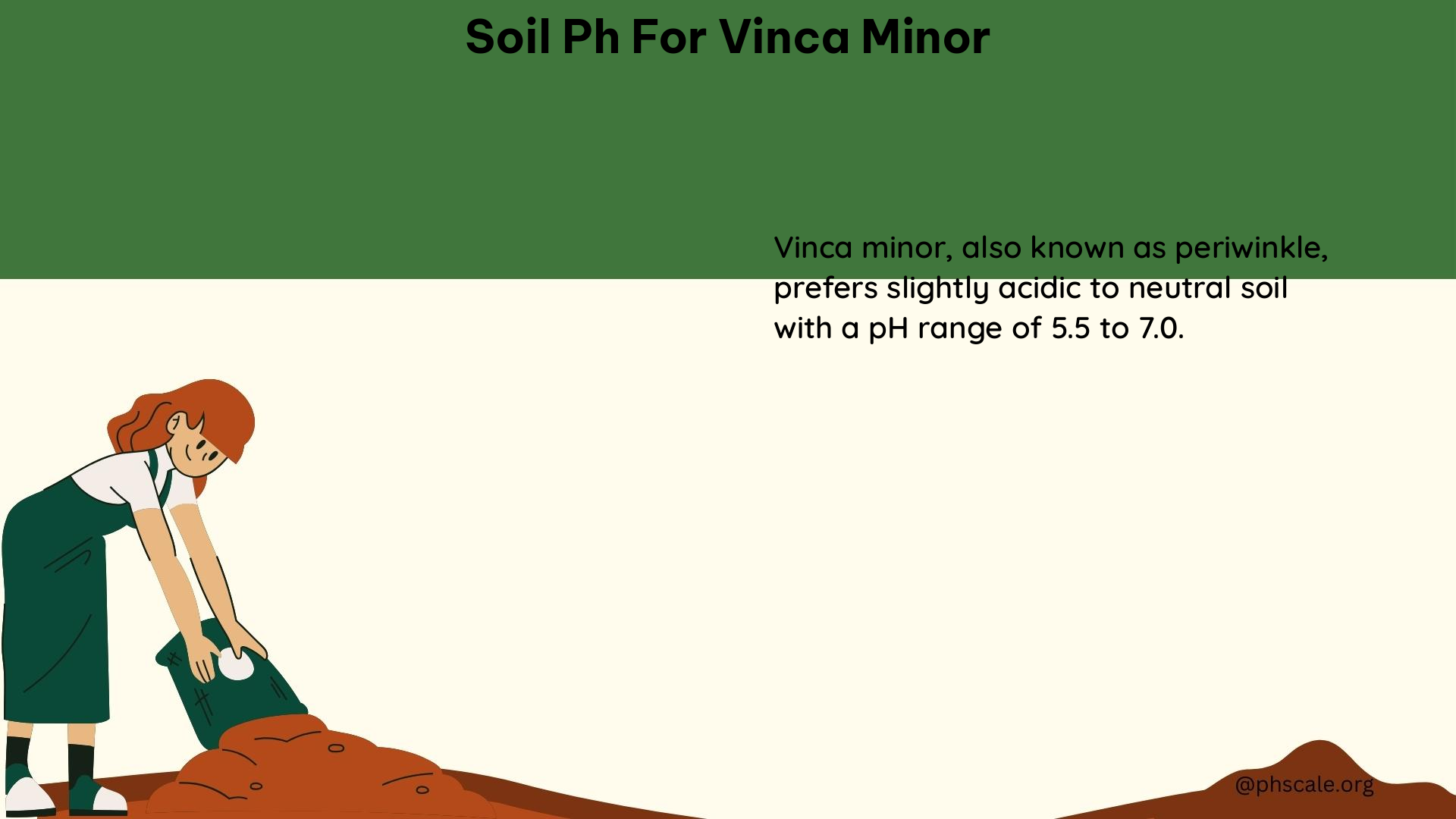The ideal soil pH range for Vinca minor, also known as lesser periwinkle, is between 5.0 and 8.0, making it a versatile plant that can thrive in both acidic and alkaline soil conditions. This adaptability allows Vinca minor to be a popular choice for ground cover and landscaping applications. In this comprehensive guide, we’ll explore the nuances of soil pH and its impact on the growth and health of Vinca minor, as well as provide practical tips for maintaining the optimal pH level.
Tolerance to High pH Soils
Vinca minor is known for its ability to tolerate high pH soils, but its growth may not be as vigorous as in more neutral or slightly acidic conditions. While it can survive in alkaline soils, the plant is best suited for soils with a pH range between 6.0 and 7.5, which allows it to thrive and produce an abundance of blooms.
Effects of Low Soil pH on Vinca Minor Growth

In contrast, low soil pH can have a more significant impact on Vinca minor’s growth and development. While the plant is still able to survive in acidic conditions, it may not grow as rapidly or produce as many flowers as it would in a more balanced pH environment. Maintaining a soil pH between 5.0 and 8.0 is crucial for ensuring optimal growth and flowering in Vinca minor.
Contaminants and Chemicals
Vinca minor is susceptible to a variety of fungal diseases, particularly in humid and wet climates. Additionally, the plant can be affected by pests such as aphids, spider mites, scale, and whiteflies. To address these issues, gardeners can use insecticidal soap or neem oil to control infestations and maintain the health of their Vinca minor plants.
Balancing Soil pH
To ensure the ideal soil pH for Vinca minor, gardeners can employ several methods:
- Add Organic Matter: Incorporating compost or well-rotted manure into the soil can help improve its structure and fertility, while also maintaining a balanced pH.
- Use pH-Adjusting Materials: Depending on the current pH level of the soil, gardeners can add lime to raise the pH or elemental sulfur or aluminum sulfate to lower it.
Home Remedies
In addition to commercial pH-adjusting products, gardeners can also use some home remedies to balance the soil pH for Vinca minor:
- Eggshells: Crushed eggshells can help raise the pH by adding calcium carbonate to the soil.
- Coffee Grounds: Adding coffee grounds can help lower the pH by introducing organic acids.
Helpful pH Quantity to Consume
For Vinca minor, a balanced fertilizer with equal parts nitrogen, phosphorus, and potassium (NPK) can be beneficial. This can be applied monthly, especially if the soil lacks rich organic matter.
History
Vinca minor, also known as lesser periwinkle, is native to Europe and has been naturalized in the United States. It has been used as an ornamental ground cover for centuries, valued for its evergreen foliage and early spring flowers.
References
- The Spruce. (2022). How to Grow and Care for Vinca Minor (Periwinkle). Retrieved from https://www.thespruce.com/vinca-minor-vines-2132217
- Cornell University. (n.d.). Species: Vinca minor – Woody Plants Database. Retrieved from https://woodyplants.cals.cornell.edu/plant/284
- Balkan Ecology Project. (n.d.). Vinca minor. Retrieved from https://www.balkep.org/vinca-minor.html
- Perennial Resource. (n.d.). Vinca minor. Retrieved from http://www.perennialresource.com/variety.php?ID=VINCO
- Gardenia.net. (n.d.). Periwinkle: Plant Care and Growing Guide. Retrieved from https://www.gardenia.net/guide/periwinkle-plant-care-and-growing-guide.
